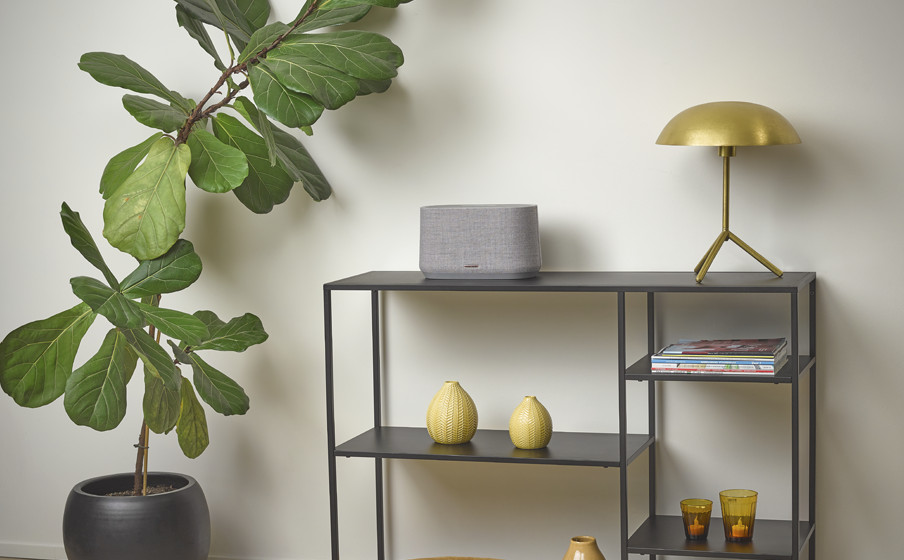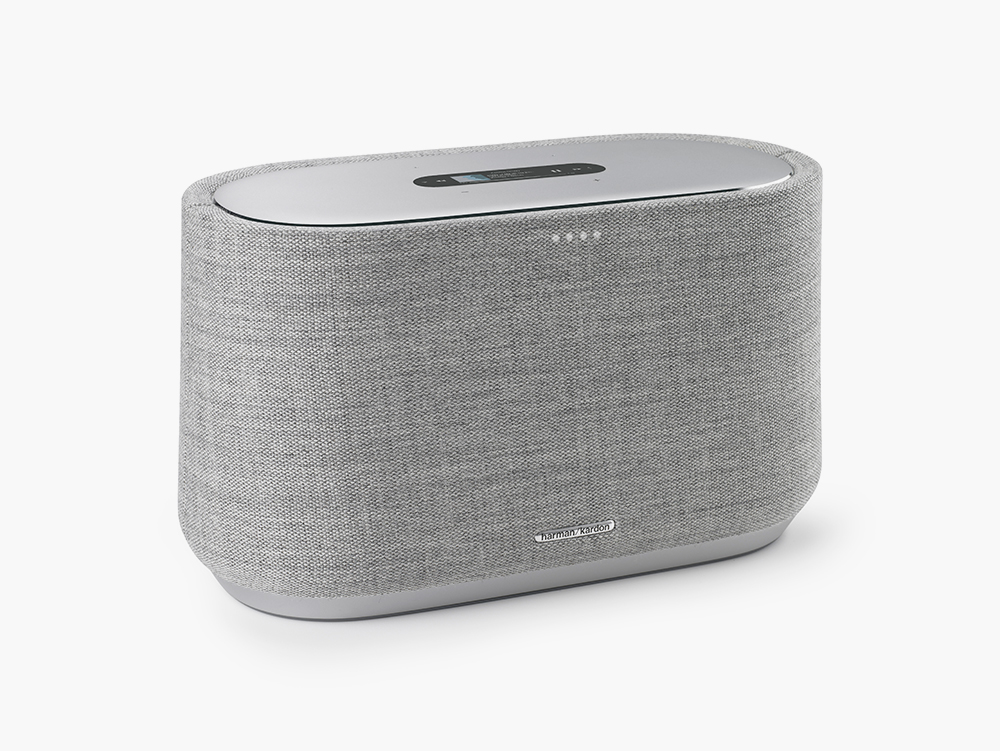Google and Harman Kardon’s Citation 300 speaker is unfussy, powerful and convenient

Receive our daily digest of inspiration, escapism and design stories from around the world direct to your inbox.
You are now subscribed
Your newsletter sign-up was successful
Want to add more newsletters?

Daily (Mon-Sun)
Daily Digest
Sign up for global news and reviews, a Wallpaper* take on architecture, design, art & culture, fashion & beauty, travel, tech, watches & jewellery and more.

Monthly, coming soon
The Rundown
A design-minded take on the world of style from Wallpaper* fashion features editor Jack Moss, from global runway shows to insider news and emerging trends.

Monthly, coming soon
The Design File
A closer look at the people and places shaping design, from inspiring interiors to exceptional products, in an expert edit by Wallpaper* global design director Hugo Macdonald.
It’s a dizzying time to be in the market for speakers, with yet another new generation of smart systems vying for your attention. This time the AI-powered digital assistants are being paired with vastly improved sound quality. Both Bose and Sonos have partnered with Amazon’s Alexa, which is also promising to find its way into Audi’s coming generation of electric cars. Not to be outdone, Google has teamed up with Harman Kardon in order to fuse high fidelity with the undeniable convenience of having all the world’s knowledge at the tip of your tongue.
The new Citation 300 is a standalone room speaker, capable of filling a sizeable space and designed to blend into a contemporary interior. Although the device’s packaging doesn’t quite have Google’s new-found knack for simple presentation and a seductive unboxing experience, the unit itself is calm and unfussy, with a fashionable edging of rough textured grey fabric (from Kvadrat, no less). A lozenge-shaped touch screen sits at the top of the device to manage the various options and streaming services, while the Google Assistant will chip in with answers to your queries, diary updates and all the other data-driven minutiae you’ve chosen to migrate to the cloud.

Set-up is simple through the Google Home App, and if you’re a Google Play subscriber – and the company fervently hopes you are – then the Citation 300 dovetails neatly into your current set-up. The sound is excellent, adding a layer of detail and bass definition that you just don’t get with the pocket-sized speakers sold by the tech giants themselves. If you’re not a subscriber – or prefer to keep the eavesdropping mic on permanent mute – the Citation works just as well as an outsized Bluetooth speaker for streaming and casting. For smart home aficionados, the speaker can also connect with other smart devices.
We’re in the early skirmishes of an ongoing AI war, and the fighting is still focused on getting such devices embedded in consumers’ lives. For those who want to surrender to technology, hands-free convenience and algorithmic cultural creation has never sounded so good.
INFORMATION
Harman Kardon Citation 300, from £349.99. For more information, visit the Harman Kardon website
Receive our daily digest of inspiration, escapism and design stories from around the world direct to your inbox.
Jonathan Bell has written for Wallpaper* magazine since 1999, covering everything from architecture and transport design to books, tech and graphic design. He is now the magazine’s Transport and Technology Editor. Jonathan has written and edited 15 books, including Concept Car Design, 21st Century House, and The New Modern House. He is also the host of Wallpaper’s first podcast.